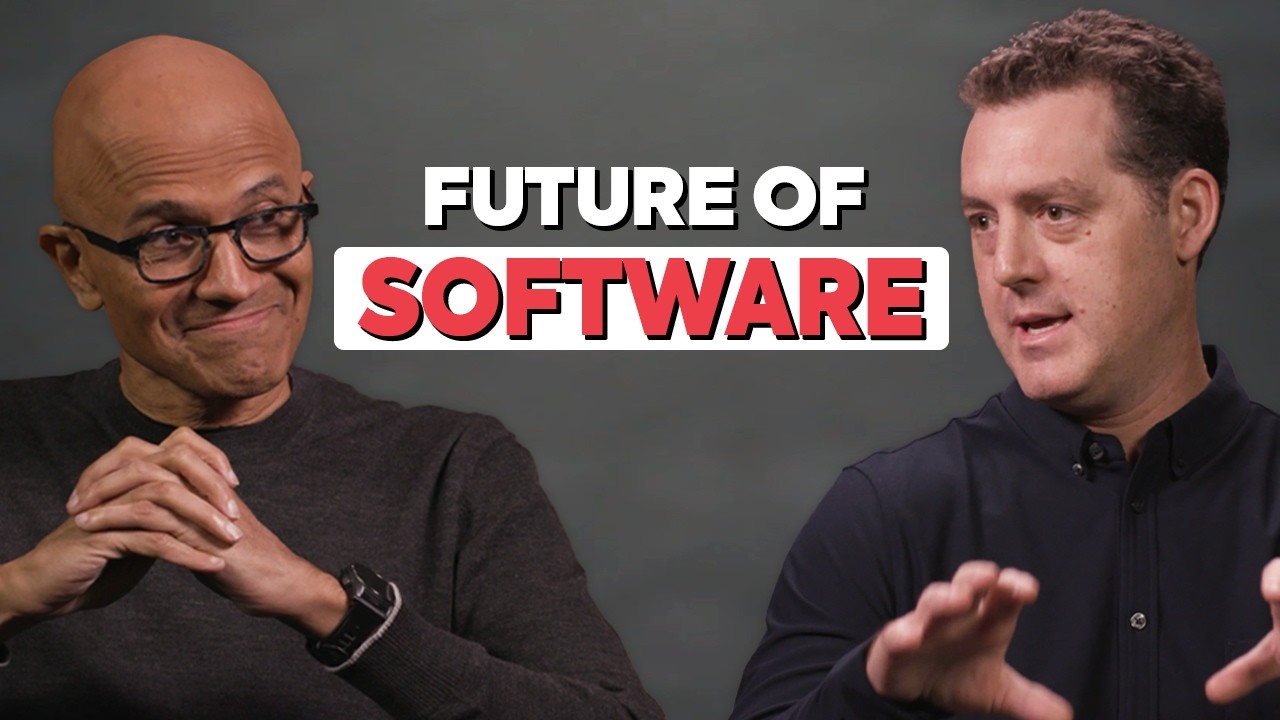Microsoft CEO Satya Nadella discusses how AI is transforming the technology landscape by requiring reimagined infrastructure, integrated AI tools in productivity applications, and a shift towards agent-based workflows across systems. He emphasizes the importance of secure data ownership, environmental sustainability, and the potential for AI to drive societal benefits and economic growth in a responsible manner.
In the interview, Microsoft CEO Satya Nadella discusses the transformative impact of AI on the technology landscape, emphasizing that every layer of the tech stack must be reimagined to accommodate the new workloads driven by AI agents. He highlights that AI workloads require significantly more energy and resources, such as GPUs, storage, and compute power, than previous applications. Nadella notes that Microsoft’s existing infrastructure, built over the past 15 years, is highly relevant for these new demands, but it needs to be adapted at every level—from infrastructure to data—to support AI’s scale and complexity.
Nadella elaborates on how AI is fundamentally changing Microsoft’s productivity tools, particularly Office 365. He describes three modes of interaction: a new AI-enabled UI with chat and agents, Teams integrating AI into meetings and collaboration, and individual workspaces where users can leverage AI assistants like Copilot in tasks such as analyzing spreadsheets or writing documents. These advancements turn Office into an integrated IDE with chat capabilities, significantly enhancing user productivity and making AI an embedded part of everyday work environments.
The conversation also covers the future of software applications, with Nadella asserting that traditional application layers will collapse into agents orchestrating multiple backends and data sources. He envisions a new orchestration layer that supports complex business processes across various systems, including enterprise SaaS applications. Platforms like Microsoft’s MCP (Multi-Client Platform) will play a crucial role in enabling these agent-based workflows, and the industry must support flexible, interconnected systems that can adapt to this agentic web, moving beyond static, siloed applications.
Regarding data ownership and security, Nadella affirms that companies will continue to own the IP generated by their agents, similar to traditional work products. He emphasizes the importance of managing agents securely, with proper identity, access, and data protection measures in place. Nadella also discusses the potential for individuals to develop personal agents for their private lives, stressing the need to keep personal and corporate data separate to prevent leakage and maintain privacy, supported by existing Microsoft security frameworks like Entra and Defender.
Finally, Nadella addresses the environmental concerns associated with AI’s energy consumption, acknowledging that AI’s energy usage is a valid concern but emphasizing that the industry is committed to sustainability. He advocates for optimizing energy efficiency through software and supporting renewable energy initiatives, asserting that AI can drive societal benefits such as improved healthcare and scientific discovery. Nadella envisions a future where AI’s cost approaches zero, unlocking new use cases and economic growth, while maintaining a focus on sustainable development and responsible innovation.
